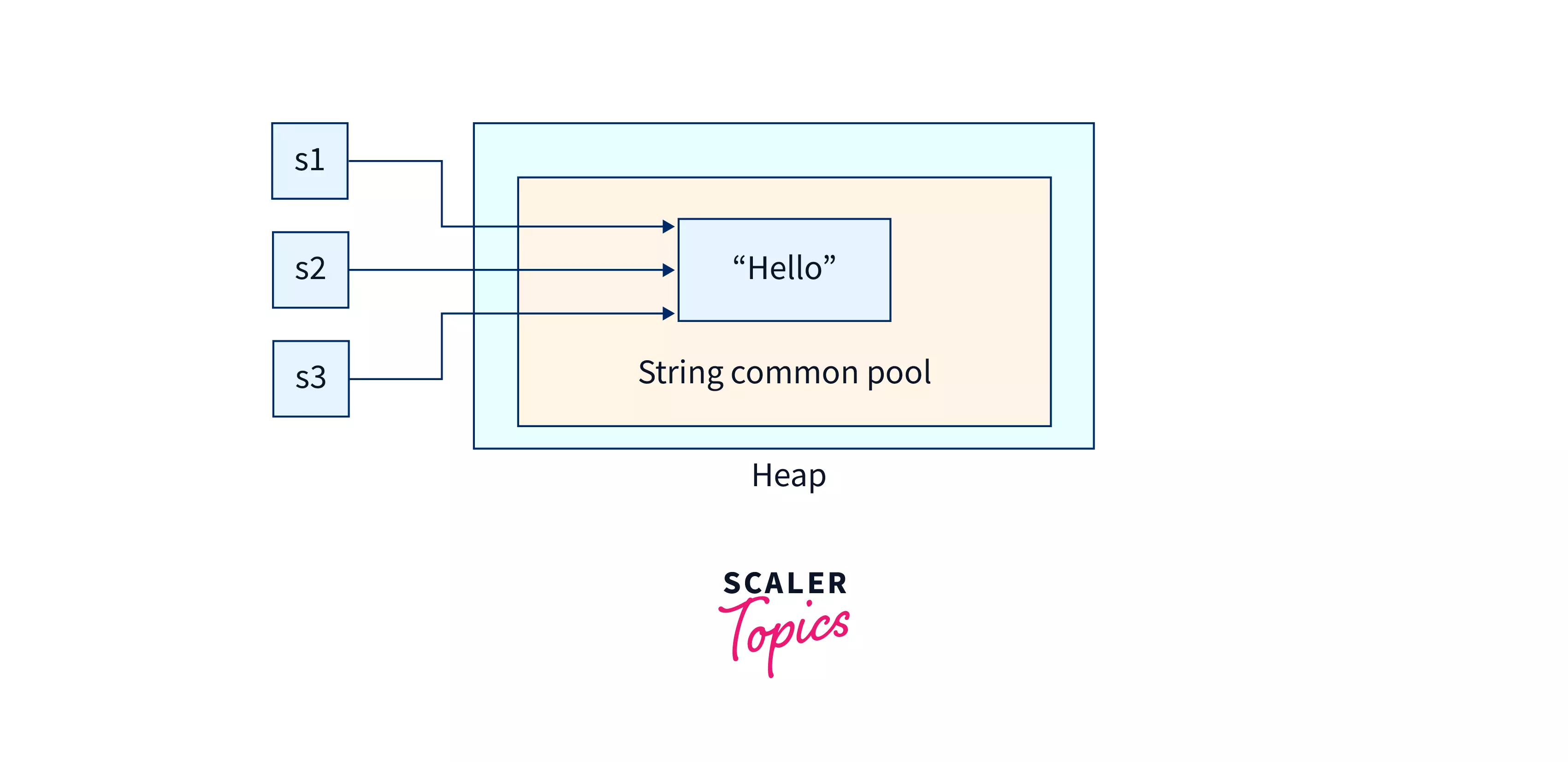Why Are Strings Immutable in Java? Insights right into Memory Performance
Why Are Strings Immutable in Java? Insights right into Memory Performance
Blog Article
What Is Immutable Strings and How It Functions
In the realm of shows, comprehending the idea of unalterable strings is critical for creating robust and safe and secure applications. Immutable strings refer to strings that can not be changed after they are produced, making certain data integrity and predictability within the code.
The Essentials of Unalterable Strings
Unalterable strings, as a fundamental principle in programs, are character sequences that can not be transformed once they are produced. This means that when a string is assigned a worth, that value can not be modified. In languages like Python and Java, strings are immutable items, resulting in different effects in regards to memory administration and information stability.
Among the essential advantages of immutable strings is that they provide a feeling of safety in data manipulation. Because the web content of an immutable string can not be customized, it ensures that the initial data stays intact, minimizing the risk of unplanned modifications throughout program execution (Why are strings immutable in Java?). This home additionally streamlines debugging processes, as designers can rely on that when a string is specified, its value will certainly not be accidentally altered
In addition, unalterable strings help with effective memory usage. When a brand-new string is developed based upon an existing one, rather than changing the initial string, the brand-new worth is saved separately. This method boosts performance by reducing memory fragmentation and streamlining memory allocation processes. Generally, comprehending the essentials of immutable strings is important for grasping programs ideas and enhancing code performance.
Advantages of Immutable Strings
Building upon the security and efficiency benefits of unalterable strings, their benefits include enhancing code dependability and simplifying simultaneous programming jobs. By being immutable, strings can not be changed after production, which gets rid of the danger of unexpected modifications in the data they save. This inherent immutability ensures that once a string is developed, its worth stays constant throughout the program's implementation, minimizing the possibilities of insects brought on by unexpected changes.
Furthermore, unalterable strings contribute to code integrity by making it much easier to reason concerning the state of a program. Since strings can not be transformed, developers can rely on that a string will certainly always hold the same worth, simplifying debugging and maintenance efforts. This predictability results in more trustworthy and stable codebases.

Implementation in Shows Languages
Within various programming languages, the consolidation of original site unalterable strings is a basic aspect that influences just how data is taken care of and manipulated within code structures. The execution of unalterable strings differs throughout different programs languages, with each language supplying its very own mechanisms to support this principle.

In contrast, languages like C and C++ do not have built-in assistance for immutable strings. Developers in these languages should by hand carry out immutability by enforcing regulations within their code to stop direct adjustments to string items.
Best Practices for Dealing With Unalterable Strings
When handling immutable strings in shows languages like Java and Python, sticking to finest methods makes sure protected and reliable data control. Among the vital ideal practices is to utilize StringBuilder or StringBuffer as opposed to directly controling strings, particularly when taking care of comprehensive concatenation operations. These courses provide mutable alternatives for string adjustment, aiding to avoid unneeded memory allowances and enhancing performance.
Furthermore, when functioning with delicate information such as passwords or API secrets, it is essential to prevent saving them as ordinary message in immutable strings. Making use of hop over to here safe and secure storage space devices like char selections or specialized collections for taking care of sensitive info helps reduce protection dangers associated with unalterable strings.
Real-world Applications and Instances
Discovering useful applications of immutable strings in different sectors reveals their significant influence on data integrity and system dependability. In the healthcare field, unalterable strings play an essential role in ensuring the protection and discretion of individual data. By avoiding unapproved modifications to delicate information such as clinical records and prescriptions, immutable strings aid preserve conformity with strict personal privacy laws like HIPAA.
Monetary establishments additionally take advantage of the unalterable nature of strings to improve the security of consumer information and deal documents. Immutable strings assist protect against scams and unapproved alterations to monetary details, supplying a durable protection against cyber hazards and ensuring the trust and confidence of customers.

Final Thought
Best methods for working with unalterable strings consist of staying clear of direct modifications and using approaches that return brand-new string things. Real-world applications of unalterable strings consist of data encryption, caching, and string adjustment tasks.
Unalterable strings refer to strings that can not be altered after they are created, making sure data integrity and predictability within the code. When a brand-new string is produced based on an existing one, instead than changing the initial string, the brand-new value is kept individually.In languages like Java and Python, strings are immutable by default, suggesting that as soon as a string item is created, its worth can not be transformed - Why are strings immutable in Java?. Best techniques for functioning with unalterable strings consist of preventing direct modifications and using methods that return new string objects. Real-world applications of immutable strings include data encryption, caching, and string manipulation tasks
Report this page